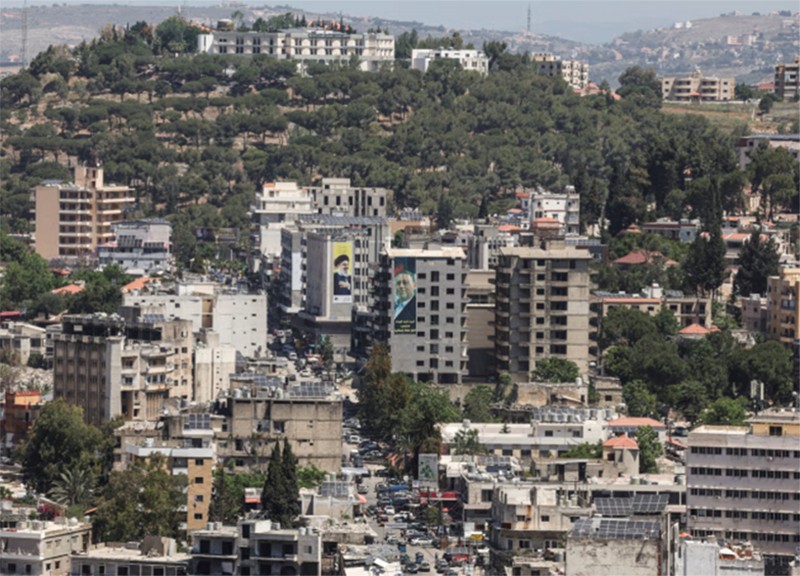
The progress is helping keep a fragile cease-fire intact. The question is how far will it go.
By Omar Abdel-Baqui and Adam Chamseddine. WSJ.
BEIRUT—Lebanon’s army has largely disarmed Hezbollah in its southern strongholds—in part with the help of Israeli intelligence—as the country’s new government moves to enforce a cease-fire that halted an intense wave of fighting with Israel last year.
U.S. and Israeli officials say they have been pleasantly surprised by the progress, which has been critical in maintaining the fragile truce struck in November. The question now is whether the Lebanese state can complete the task in the south and extend its efforts to the rest of the country. “All over the Lebanese territory, the state should have a monopoly on arms, ”Lebanese Prime Minister Nawaf Salam said in an interview with The Wall Street Journal, knocking his closed fists on a table.
The Lebanese government has achieved roughly 80% of its objectives in disarming militias in the south, Salam said.
Israeli intelligence passed along by the U.S. has helped the Lebanese army find and destroy Hezbollah’s remaining weapons stockpiles and military posts in the south, said senior Arab officials. The army says it destroys some of the weapons it confiscates from Hezbollah but keeps whatever is usable, bolstering its arsenal.
The efforts have allowed the Lebanese army to establish its authority south of the Litani River, controlling exit and entry points. “We do see a lot of areas where the Lebanese army is way more effective than expected, ” an Israeli military official said.
The Lebanese government also is touting a multiphase plan to disarm Palestinian armed groups, which mostly operate in dense refugee camps. Lebanese security officials in April cracked down on a Palestinian militant cell allegedly launching rockets toward Israel, making rare arrests.
The truce states that the disarmament efforts should begin south of the Litani, which runs roughly parallel to the border with Israel. Salam and the U.S. have advocated for Hezbollah to be disarmed in the rest of the country as well.
Hezbollah has cooperated with the disarmament efforts in the south and has been cornered into ceding security control in other areas, such as at Beirut's airport, say senior Lebanese security officials.
People familiar with Hezbollah's thinking say the group is trying to win domestic political points by playing ball as Lebanon seeks reconstruction funding from Western and Arab Gulf states, which are hostile to the militants and putting stipulations on financial aid.
It is unclear whether Hezbollah will cooperate with further disarmament in the rest of the country.
"I don't see a scenario where a Lebanese government will take the decision to disarm them by force," said Randa Slim, a fellow at the Johns Hopkins University-based Foreign Policy Institute. "They need to make Hezbollah's unwillingness to disarm untenable and politically costly to them by linking reconstruction of Shia-majority areas to their disarmament."
Disarming Hezbollah is a political risk for Salam's government. The group has long had outsize sway in Lebanon, boasting hundreds of thousands of supporters, most of whom are members of Lebanon's Shia Muslim community.
But Hezbollah has been weakened, opening an opportunity for the long-moribund Lebanese state to assert itself. A two-month Israeli campaign of intelligence operations, air-strikes and ground maneuvers wiped out Hezbollah's leadership and much of its arsenal. The fighting killed thousands of Lebanese and caused billions of dollars in damage, marring Hezbollah's domestic reputation.
Israel has struck Lebanon hundreds of times since the cease-fire came into effect, according to Unifil, the United Nations peacekeeping force in the country. It also has troops stationed in Lebanon's south.
Hezbollah's messaging on disarmament, its role in Lebanese society and its future regarding armed resistance against Israel have been murky. Its leaders stress the need for the group to remain armed, highlighting Lebanon's weak state army and powerful enemy neighbor in Israel and Sunni extremist violence targeting religious minorities in Syria.














